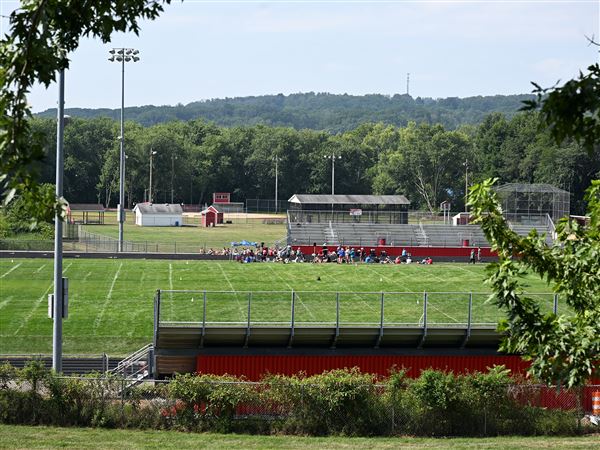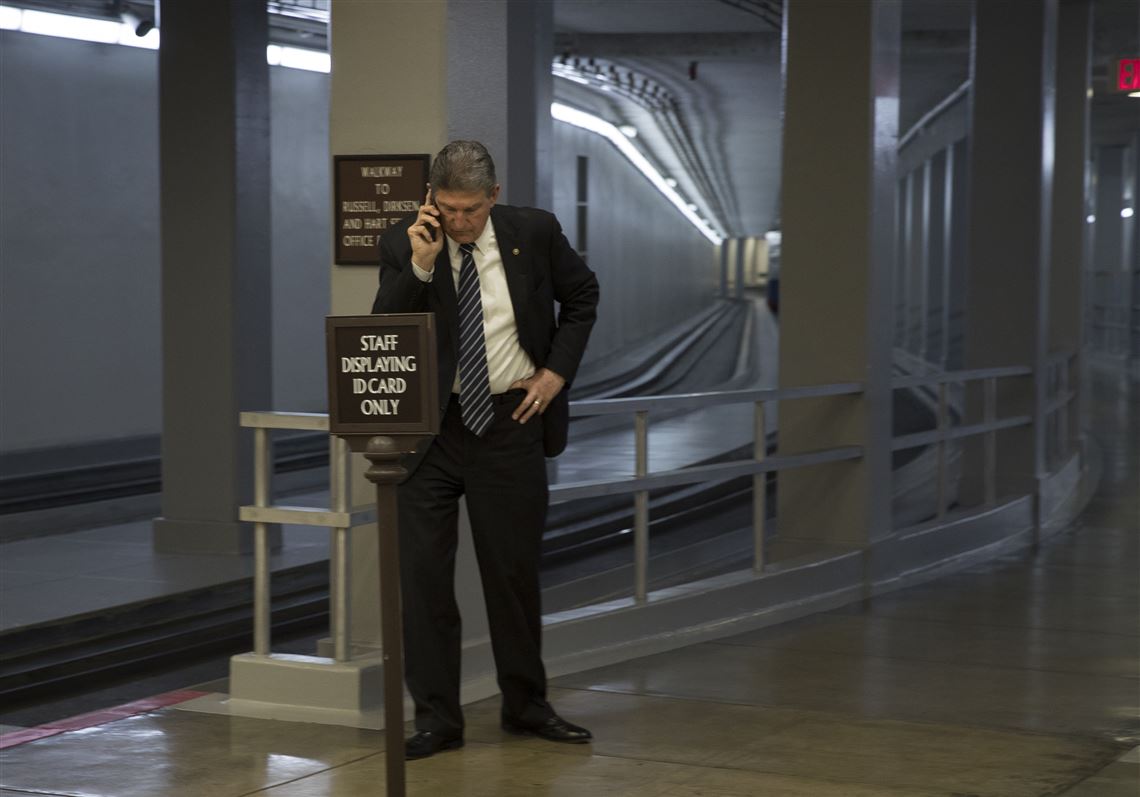WASHINGTON – After a week of partisan bickering and filibuster threats by coal-region Democrats, the Senate was preparing Friday for a middle-of-the-night vote on a bill to avert a government shutdown and then planned to start its long holiday recess.
The bill, which was expected to pass, would fund the government until April 28 and temporarily extend protection of coal miners’ health care benefits that otherwise would start running out Dec. 31. Democrats from Pennsylvania, Ohio and other coal states wanted a permanent solution in the form of the Miners Protection Act, which would have directed $3 billion over the next 10 years to miners’ health care and pension funds.
“Four months? I guess we’re supposed to be happy with that. Well, I’m not. I’m sorry. I’m not,” said U.S. Sen. Joe Manchin, D-W.Va. who relented Friday evening on a threat to block the government funding bill unless Senate Republican leaders allowed a vote on the pension bill.
His Republican counterpart from West Virginia, Sen. Shelley Moore Capito, stood with him, as did numerous Democratic colleagues including Sens. Sherrod Brown of Ohio and Bob Casey of Pennsylvania.
“There is no excuse for putting in the continuing resolution as pathetic a proposal as we got. It basically says you have health care for four months, and we’re supposed to be satisfied with that,” Mr. Casey said in a fiery floor speech. “Well here’s a news bulletin: We’re not satisfied. These miners and their families are not satisfied and we are not going to stop fighting on this.”
In threatening to shut down the government, Democrats picked up a hammer from the Republicans’ toolbox. GOP lawmakers blocked a government funding bill in 2013 during a dispute over the Affordable Care Act. Non-essential government services were stopped for 16 days while lawmakers negotiated a deal.
Sen. Chuck Schumer, D-N.Y., indicated his caucus’ shutdown threat was disingenuous.
“That would hurt millions of Americans [and] take millions out of the economy,” he said. “We never intended to shut down the government, but our intention is very real: to highlight the seriousness of this issue, not to let people think this is going to go away … and I think we’ve made our point.”
Democrats say the Miners Protection Act fulfills a promise Congress and President Harry Truman made in 1946, when they guaranteed United Mine Workers of America retirement funds. Subsequently passed bankruptcy laws allowed insolvent mining companies to sidestep pension and benefit obligations that now amount to about $7,000 per year for 89,000 miners, including 13,000 in Pennsylvania.
“We wouldn’t have the quality of life we have in America if it hadn’t been for the domestic energy that our miners have given us,” Mr. Manchin said in a speech on the Senate floor. “These are not big labor pension plans. They’re very small … but Congress passed bankruptcy laws that let [companies] walk away from their obligations.”
The cost of the bill would be paid for by interest earned on the Abandoned Mine Reclamation Fund, made up of taxes on coal producers.
U.S. Sen John Barrasso, R-Wyo., blamed President Barack Obama and congressional Democrats for mining companies’ inability to fund pensions and retirees’ health care. Excessive and expensive regulation has put mining companies out of business, he said.
“Companies can’t meet their obligations and it’s the Democrats’ policies that have caused it,” he said. “Our goal should not be to bail out a union health plan. The solution actually ought to be to let coal miners mine coal again. … They can pay benefits for retired workers as long as the mines are actually working and they can mine coal and sell coal and make money.”
The coal industry – which fuels steel plants – took another hit Friday, too, when Republicans refused to bolster a buy-American provision in a sweeping water infrastructure bill that also was headed for a Senate vote late Friday. The provision would have permanently required domestic steel to be used in drinking water projects funded through the water resources bill. Instead, the legislation allows foreign steel to be used after 2017.
It also would authorize flood-control, ecosystem restoration, hurricane protection projects, port improvements and more. It includes long-awaited authorization of a $2.6 billion project to replace three aging locks on the Upper Ohio River in Pennsylvania.
Washington Bureau Chief Tracie Mauriello: tmauriello@post-gazette.com, 703-996-9292 or @pgPoliTweets.
First Published: December 10, 2016, 5:00 a.m.

















